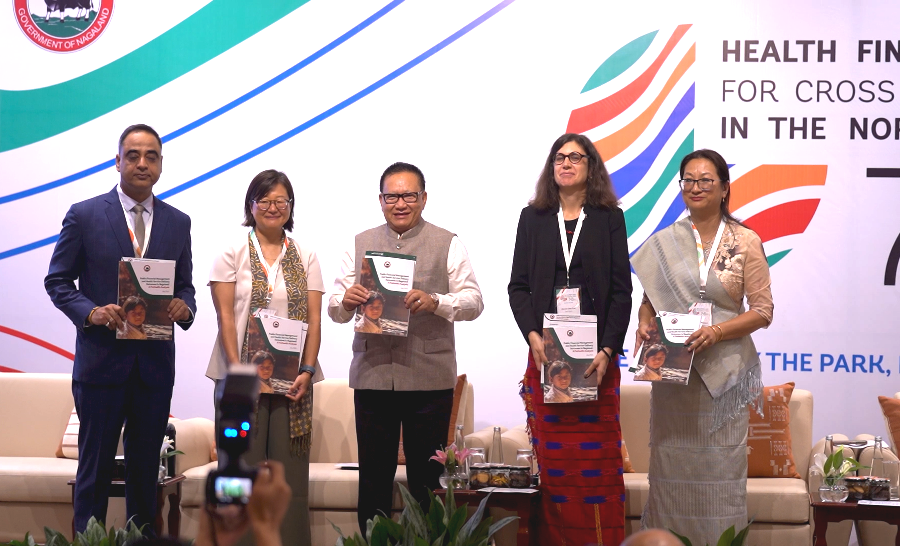Department of Health & Family Welfare organises workshop on ‘Health Financing Forum for Cross-State Learning in the Northeast Region.’
Share

DIMAPUR — The Department of Health & Family Welfare, in collaboration with the World Bank, organised a two-day workshop on ‘Health Financing Forum for Cross-State Learning in the Northeast Region’ at Zone Niathu by The Park, Chümoukedima, on Tuesday.
Speaking at the inaugural programme as special guest, the Deputy Chief Minister of Nagaland, TR Zeliang, said it was a privilege to be part of the forum, describing it as an important platform to strengthen health financing reforms in the Northeast.
He said that while the region, with its rich cultural and ecological diversity, is home to over 52 million people, it continues to face structural challenges that constrain growth and equitable development. Difficult terrain, limited connectivity, and the predominance of rural livelihoods make service delivery uniquely complex, he noted, adding that climate change is further altering disease patterns, food systems, and disaster risks.
“In health, these factors converge sharply,” Zeliang said. “Maternal mortality remains unacceptably high; childhood illnesses often go untreated; and non-communicable diseases, cancers, and cardiovascular conditions are emerging as major causes of death.”
While acknowledging the challenges, he also highlighted the progress made in recent years, stating that the Northeast “has not stood still but has innovated.”
Also read: Phangnon Konyak to attend 80th UNGA session in New York
Citing the Nagaland Health Project launched in 2017 with World Bank support, he said it was the first in the region to introduce Results-Based Financing (RBF), linking funds to performance rather than inputs.
He further noted that neighbouring states such as Meghalaya, Mizoram, and Assam have also adopted Internal Performance Agreements (IPAs), each adapting the model to local contexts. Nagaland and Mizoram, he added, have expanded social health insurance beyond targeted groups, moving toward universal health protection — a step aligned with India’s goal of Universal Health Coverage (UHC).
“This workshop is about connecting these experiences and learning from one another’s journeys,” he said, acknowledging the participation of officials from Gujarat whose work in public financial management and health system governance offers valuable insights for the Northeast.
WATCH MORE:
He expressed hope that the forum would provide space to both celebrate what has worked and examine what has not, including the challenges of sustaining RBF, aligning incentives, and strengthening institutional capacity to manage performance-based funds.
Setting the context for the forum, Marion Cros, Senior Health Specialist at the World Bank, said it was a privilege for the World Bank to support the Government of Nagaland in hosting the event. She noted that despite the region’s difficult terrain, extreme weather, and historically low health spending, the Northeast has shown strong resilience and community spirit, which have been key drivers of reform success.
She said states such as Assam, Mizoram, Meghalaya, and Nagaland are experimenting with results-based payment systems in primary healthcare — an approach still rare in other parts of India. “There is a lot to learn here,” she remarked, citing Nagaland and Mizoram’s introduction of universal health insurance as an important step toward ensuring access to hospital care without financial hardship.
Cros said the forum aims to bring together policymakers from the Northeast and the Centre to exchange real-world experiences and research on UHC and health financing. “We want this discussion to be meaningful, honest — and even provocative,” she added.
The inaugural session also featured a welcome address by Anoop Khinchi, Commissioner and Secretary, Health and Family Welfare, and a vote of thanks by Junko Onishi, Lead Social Protection Specialist and Programme Leader, Human Development, World Bank.